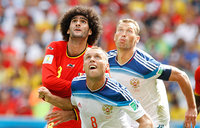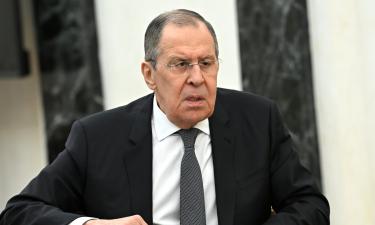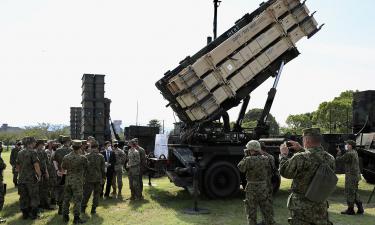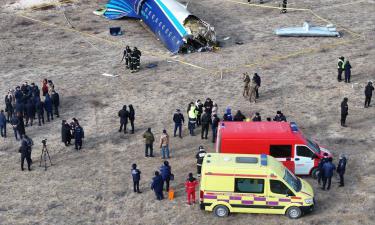Money kills Russian football
The Brazilian FIFA World Cup has ended. The next one will be Russian. Many, even grow-up tough men, were crying, when the Russian team lost at the tournament. What does Russia need to do to put up a good show in 2018? A well-known sports observer shared his views on the subject with Pravda.Ru.

The World Cup in Brazil was the 20th one. To win this championship was the dream of many teams, who came to the South American continent. In particular, it goes about the teams, whose victory was predicted by many a long time before the tournament: Brazilians, Argentines, Germans and Spaniards. England, Italy and the Netherlands were also among the favorites, but not Russia.
In the final game, it was 22-year-old Mario Goetze of Germany, who proved everyone that his football team was the best in the world. The success of the German football machine is based on years of hard work. There is no doubt that many experts from other countries, including, hopefully, Russia, will take account of
the experience of their colleagues from Germany.
With the collapse of the Soviet Union and the construction of the Russian society, the system of football training disappeared. Money became most important. Today, football coaches work with the children, whose parents pay for their training. A talent is hard to find - the primary goal is to find money.
As for the World Cup in Brazil, one should pay attention to such an important factor as the average age of players. Germany and the Netherlands were among the youngest teams (23-25 years). Russia was among eight oldest teams (27.3 - 27.8 years). It will be impossible to create a new generation of football players before 2018, when Russia hosts the World Cup. How Russia is going to build its national team is a question of questions. The president of the Russian Football Association said that Russia could resort to foreign players involved in the Russian domestic championship. Noteworthy, Russia would not have won the Sochi Winter Olympics, if it was not for the victories of foreign athletes - Victor Ahn (formerly of South Korea) and Victor Wild (formerly of the USA).
Today, Russia must cast aside all thoughts about successful performance in the domestic championship and finally do what the Germans started doing in the early 2000s.
At the turn of two centuries, German football found itself in a crisis. The crisis affected youth football, which means younger players for the Bundesliga and the national team. During those years, a historical document appeared in Germany. Renowned expert and sports director of the German Football Association (DFB) Matthias Sammer penned a small booklet entitled "The Long Road Towards Success."
In 2007, the German Football Association, which is the largest sports federation in the world, outlined three major goals:
1. Leadership in world football
High places and winning titles at European and world championships and Olympics.
2. Attractiveness of football
Joy on football field - from beginners to top players.
3. Motivation to move
Eternal love for sports and healthy lifestyle.
Following the goals, the DFB highlights three main ways to achieve them:
1. Personality Development
To prepare players not only to sports games, but also to life. To develop psychological self-confidence, respect towards an opponent, coach, referee and all people.
2. Individual Development
Intense personal interest of the coach in every player. Intensive support of players not only on the football field. Extensive training program. Individual distribution of physical and psychological stress.
3. Key role of the coach
To give players motivation and joy of the game of football. To plan a demanding training process. To be an example and authority to players on and off the football field.
The German specialist distinguished seven stages in the development of a footballer: 3 - 6 years, 7 - 10, 11 - 14, 15 - 18, 17 - 20, 21 - 29 and leading players in the German national team. To achieve success, all child and youth coaches in German football must either adhere to similar views on the development of the game in general or share similar game philosophy.
Russia lacks qualified coaches. There are specialists, some of them have education, some others do not. Each of them has their own approach to football and their own methods of training. A coach for children is an underpaid occupation in Russia. The only way for the Russian football not to die is to elaborate a joint federal program for the development of football in the country for 15-20 years. It is extremely important that young players should be trained at sports schools for free, as it was during the Soviet times. In this case, perhaps, we will not have the situation in our football, when youth football teams take leading places at European football, and adult teams are still referred to as promising.
In addition, many parents prefer to teach their children martial arts, rather than football or basketball. At judo, aikido or taekwondo schools, professional trainers prepare young boys for real life and its unforeseen situations. Many believe that a boy should do the sports that can be useful for him in real life afterwards. A boy should know how to defend himself, and all sorts of tennis, football and ice hockey have nothing to do with real life. Of course, one may started a heated debate on the subject, but such philosophy exists in the minds of many people indeed.
Meanwhile, the Russians have four long years to prepare for the World Cup 2018. In 2018, Russia will have to prove to herself and the entire football world that we can play football.
Alexander Alexeev
Pravda.Ru
Subscribe to Pravda.Ru Telegram channel, Facebook, RSS!





